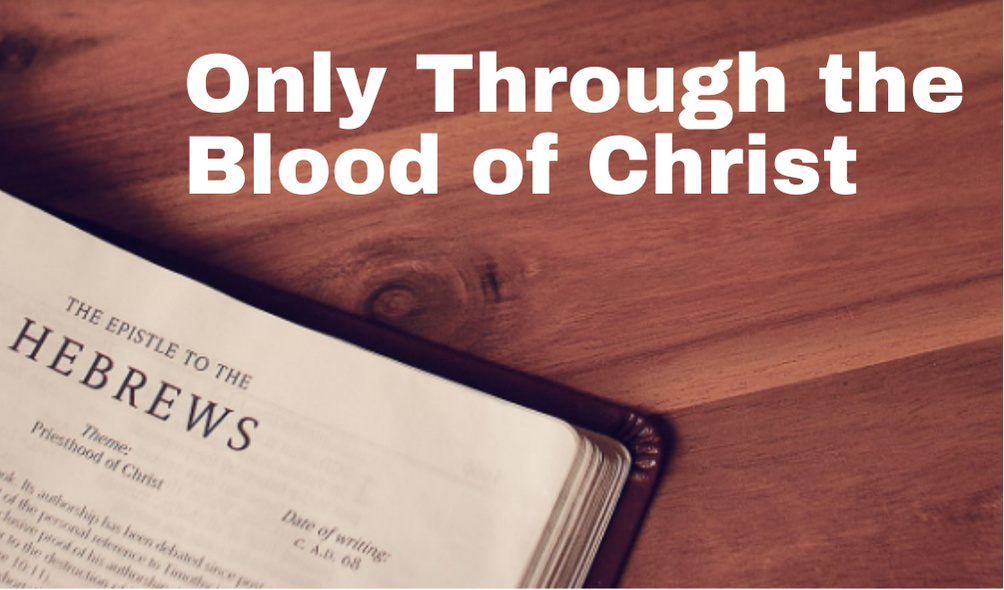July 10 , 2022 Preaching | Bro. Popit Aragones
There was once a story of an evangelist and a young man. The evangelist had just concluded preaching in the village square. As the crowds dispersed and he packed up, a young man approached him asking, “what must I do to be saved?” Sensing that this man was trusting in his own righteousness, the evangelist answered, “it’s too late” and continued on with his work. This alarmed the young man who worriedly asked, “Is it too late for me to be saved? Is there nothing I can do?”. To this the evangelist responded “It’s too late. It’s too late for the work of salvation is done. It was finished on the cross and there’s nothing we can do except to acknowledge our sin and receive God’s gift of forgiveness”.
Some of us today could probably relate to the young man in the story. Perhaps, some of us are genuinely asking what we need to do to be saved? Maybe some of us already pray and attend service, but are at times fooled to thinking that these rituals somehow affect how God accepts us. The Jewish Christians also faced a similar dilemma in the book of Hebrews. These new Christians were suffering, persecuted for what they believed in. They were going through such tough times that they were tempted to forego the very essence of Christ’s work on the cross, and go back to the old covenant they once adhered to. Against this backdrop, the author of Hebrews presents Jesus as the superior choice, the new covenant as the supreme fulfilment of the old covenant promises.
The old covenant served its purpose. It was a symbol of the new covenant, a shadow that pointed to our need for a Saviour and one that we see perfected through Christ’s sacrifice on the cross. Now even the first covenant had regulations for divine worship and the earthly sanctuary (v1). It had an earthly tabernacle, one whose design amazingly points us to Christ. The outer court contained a brazen altar symbolic of Christ as the ultimate sacrifice, and a laver representing how He cleansed us on the cross. The Holy Place included a golden lampstand symbolic of Christ as the light of the world, a table of showbread (Christ as our sustenance), and an altar of incense (Christ who intercedes for us in prayer). The Holy of Holies contained the Ark of the Covenant, a hefty wooden box which houses a golden pot filled with manna (God provides), Aaron’s rod (God will always provide leaders to lead people to Him) and the ten commandments (God’s righteous rule). The old covenant also had regulations for divine worship. Priests regularly entered the tabernacle to perform religious duties including a daily sacrifice for their sins and an annual sacrifice when the high priest enters the Holy of Holies to offer sacrifices for himself and the sins the people were unaware they committed.
Yet the old covenant was only a symbol for the present time. Accordingly, both gifts and sacrifices are offered which cannot make the worshiper perfect in conscience (v9). The old covenant needed animal sacrifices, yet this ceremonial ritual of blood only covered sin. It had no power to remove sin or make us perfect in conscience. Christ revolutionizes and fulfils the old covenant by being the perfect sacrifice for our sins on the cross. A sacrifice that not only covers, but frees us from sin. One that perfectly redeems us for all eternity, and no longer had need for ritual animal sacrifices. What’s more, when Christ appeared as a high priest of the good things having come, He entered through the greater and more perfect tabernacle, not made by hands, that is, not of this creation; and not through the blood of goats and calves, but through His own blood, He entered the holy place once for all time, having obtained eternal redemption (v11-12). Christ also became our perfect high priest. One that did not need animal sacrifices, one that entered a perfect tabernacle not made by human hands, and one who entered not once a year but mediates for us for all eternity. Through His death on the cross, Christ freed us once and for all from the penalty of sin and allows us to have a personal relationship with God.
What must I do to be saved? Not the old covenant rituals of animal sacrifices or present day rituals like prayer and service. Though our outward acts of service also please God, there is nothing we can do to earn our own salvation. We are powerless to free ourselves from sin. But Christ isn’t, and only through the blood of Christ and His perfect sacrifice on the cross are we saved. No matter what our background is, Christ’s death on the cross redeems and forgives our past, present, and future sins. All He asks is that we acknowledge our sin and accept Him as our Lord and Saviour.
